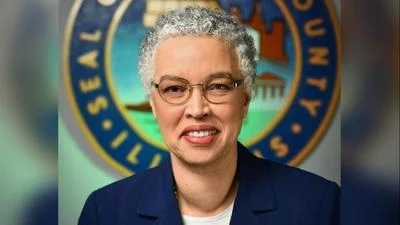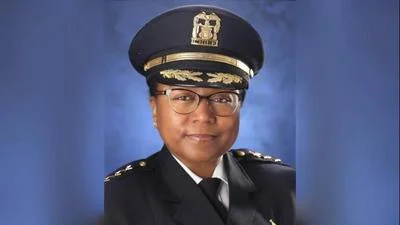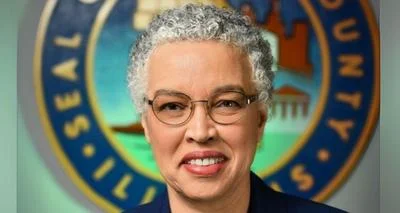There are issues larger than age in youth football that aren't getting much attention in a state House drive to ban organized tackle teams for all players younger than 12, a sport and cheer organization board member said during a recent interview.
"Honestly, the biggest issue is ensuring that each participant is correctly certified with his or her documentation," DeWayne Tyler, board member of Patriots Youth Travel Football & Cheer in Naperville, said during a Prairie State Wire email interview. "Ensure that he or she is participating on the correct level of play. And probably the most important and challenging is to ensure that all equipment is up to date, reconditioned and properly certified for play."
Instead, House Bill 4341, or the CTE Prevention Act, aims at a blanket ban on youngsters playing organized tackle football as a means to prevent the brain trauma disease chronic traumatic encephalopathy.

Bill Sponsor Illinois State House Rep. Carol Sente (D-Vernon Hills),
Tyler believes the bill is short-sighted and is not well defined.
"I oppose this ban due to the incomplete and inaccurate portrayal of concussion information and data," he said. "Rather than informing the general public on both sides of the argument, it appears a scare tactic approach was used to misrepresent highly debatable opinions. That's not how the public, parents or anyone should be educated."
HB 4341 is sponsored by Rep. Carol Sente (D-Vernon Hills), who is seeking re-election for another term in her 59th Illinois State House District seat. The 59th State House District is in Lake and Cook counties.
The legislation passed out of the House Mental Health Committee by an 11-9 vote on March 1 and then began its advance in the House. The bill was held on the House calendar order of second reading and standard debate on March 6.
"There is a lot to be said regarding this topic," Tyler said. "However based on the magnitude of the pushback, its obvious that this is a beloved game. Town hall discussions between families, scientist, manufactures, leagues, organizations and local government officials might be necessary."
A lack of open communication coupled with "a mutual desire to understand then be understood" is the "biggest fault" in the ongoing debate about youth football in Illinois, Tyler said.
"Communication is the key," he said. "All involved parties need to discuss, perhaps create a governing body and THEN work on ways to jointly maintain a safe environment for each participant."
Youth football is a long-standing tradition in Illinois, Tyler said.
"Our state, and particularity our area, has provided youth football for the surrounding communities for nearly 45 years," he said. "Coupled with the many other youth football outlets, there could potentially be thousands of young men adversely affected and unable to participate in the game they love to play and whose parents choose for them to participate in."
Safety begins with the coach, Tyler said.
"All coaches - and I do mean every single coach from every single level of play in our organization - has safety as our No. 1 concern," he said. "The well-being of each young man or young lady is first and foremost on our minds. For that reason, we as coaches eagerly volunteer for tackling certifications, concussion certifications, background checks, CPR certifications and anything else we can to ensure we are always informed, trained and prepared to safely teach the game of football."






 Alerts Sign-up
Alerts Sign-up